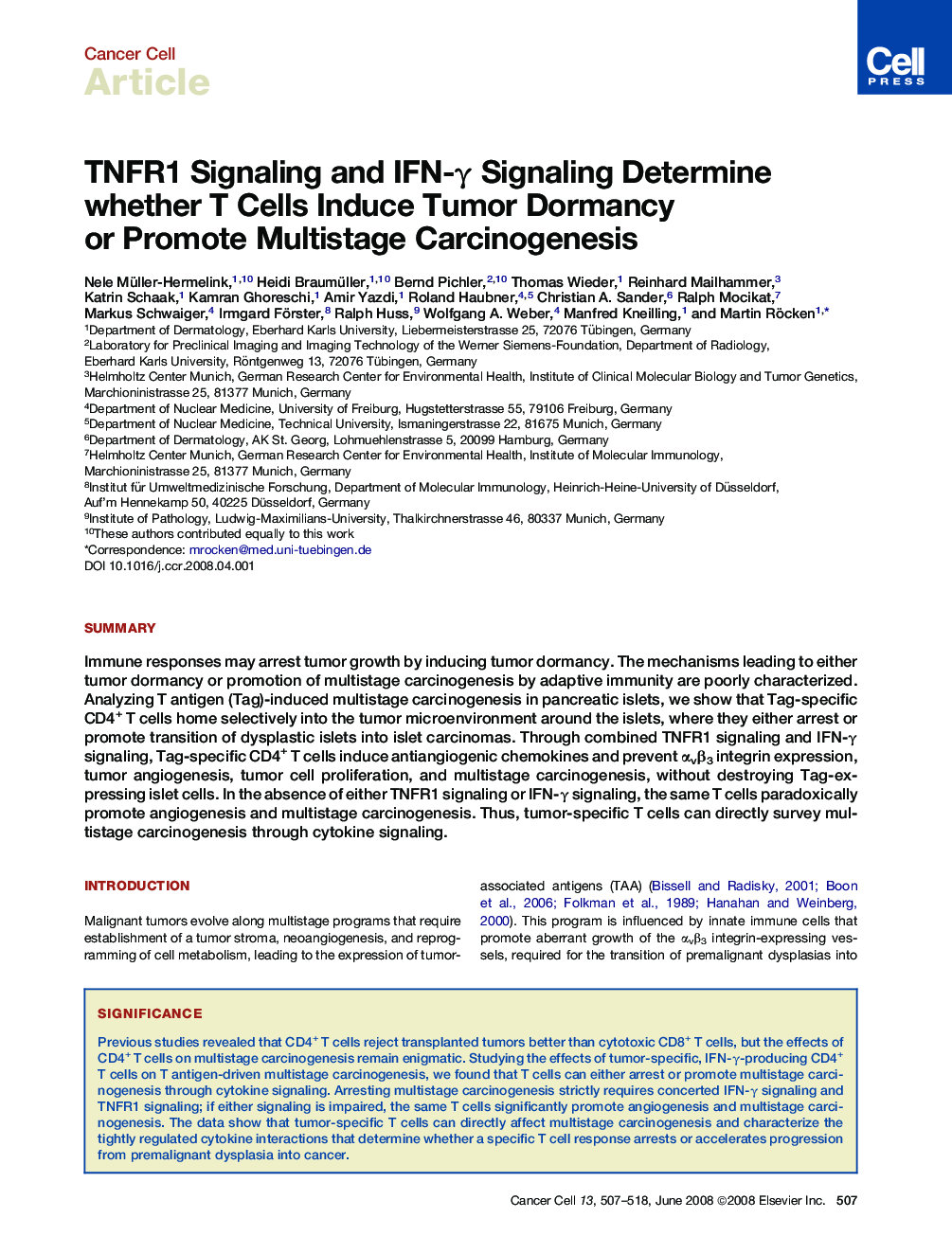| کد مقاله | کد نشریه | سال انتشار | مقاله انگلیسی | نسخه تمام متن |
|---|---|---|---|---|
| 2107822 | 1083703 | 2008 | 12 صفحه PDF | دانلود رایگان |

SummaryImmune responses may arrest tumor growth by inducing tumor dormancy. The mechanisms leading to either tumor dormancy or promotion of multistage carcinogenesis by adaptive immunity are poorly characterized. Analyzing T antigen (Tag)-induced multistage carcinogenesis in pancreatic islets, we show that Tag-specific CD4+ T cells home selectively into the tumor microenvironment around the islets, where they either arrest or promote transition of dysplastic islets into islet carcinomas. Through combined TNFR1 signaling and IFN-γ signaling, Tag-specific CD4+ T cells induce antiangiogenic chemokines and prevent αvβ3 integrin expression, tumor angiogenesis, tumor cell proliferation, and multistage carcinogenesis, without destroying Tag-expressing islet cells. In the absence of either TNFR1 signaling or IFN-γ signaling, the same T cells paradoxically promote angiogenesis and multistage carcinogenesis. Thus, tumor-specific T cells can directly survey multistage carcinogenesis through cytokine signaling.
Journal: - Volume 13, Issue 6, 10 June 2008, Pages 507–518